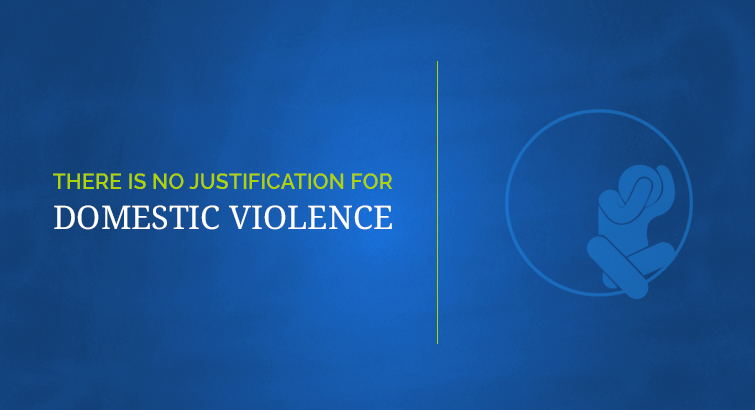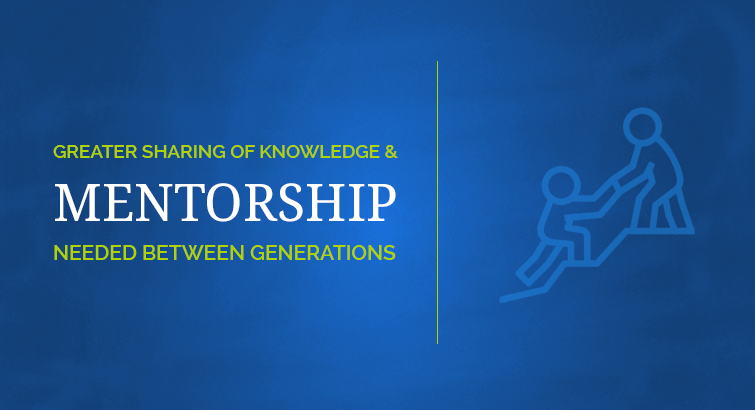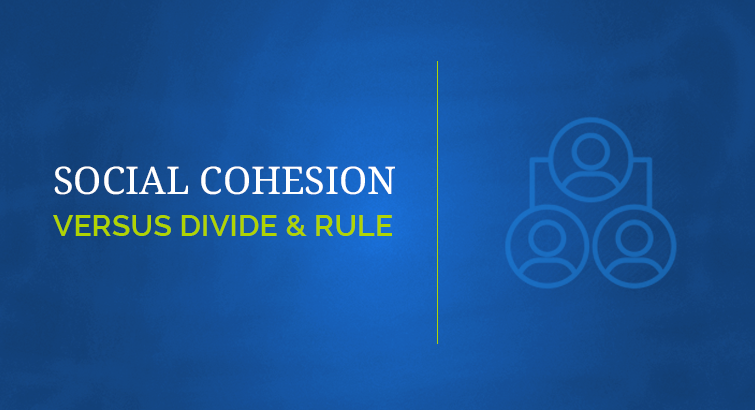|
“There is absolutely no reason for a man to hit a woman. Regardless of what she does, he must find other, non-violent ways of dealing with it.” I was conducting a domestic violence seminar for villagers in a farming community. The women in the audience paid rapt attention and I could tell that many of them agreed with my statement. Some nodded, others were more vocal and I noticed that a few silently cast furtive glances in the direction of their male partners.
“What if you trying to live a decent life? You going to church but she want go party, you tell she come to church but she gone and drink, how dat gon look? How you gon control a woman like dat?” The farmer who had asked the question rose to his feet. He looked around the room as the men suddenly seemed to come alive. Even some women seemed to think he was on to something there. That’s when I said it: There is no place for control in a relationship. In fact, at the root of domestic violence is the issue of control. We attempt to control our children’s behavior by beating them (maybe we will discuss this in another article), and way too often, we attempt to control our spouses in the same way and it is wrong! We can only truly control ourselves. Your partner (husband or wife) is entitled to choose his or her own behaviors. If you perceive the choice to be unfair, unwise or unacceptable, then dialogue is necessary. If a settlement cannot be reached then the couple may seek help from a trusted third party such as a religious leader or a counselor. If that fails, the slighted party could choose to live with it or terminate the relationship. Any attempt to exert control over your spouse is a recipe for disaster! For generations we have been taught that men are to dominate women; some women attempt to dominate their men in protest. Our parents and grandparents had a lot of things right but they got this one wrong. A happy relationship is not one where you have full control. It is one where there is mutual respect, understanding, communication, shared interests, care and consideration and freedom to be oneself. We cannot force these qualities out of anyone and when we show these qualities we are more likely to attract them in return. We need to learn to talk things over and seek to understand the other, even as we seek to be understood. We must be strong enough so that we are not threatened by the other’s refusal to see things our way. We must be considerate enough to sometimes step back so that our partners can be themselves, and above all, we must not do to the other, anything that we would not want for ourselves. If all else fails, walk away! Many have done it and were able to start over successfully. There is no shame in letting a stubborn spouse have their own way. And there is no glory in abusing another human being. Absolutely none!
0 Comments
For our young people and also for Uncle David (current President of the Co-operative Republic of Guyana) and Bharrat (former President and current Leader of the Opposition), the two most powerful leaders in our country at this time. “Excessive egos can overwhelm even the most educated of individuals and many leaders have gained power with the most noble of ideals but, once it has been achieved, become carried away by it.” - Charles Wilkin QC, Breaking the Cycle. The first time I said it, I told it to one of the most intelligent and charismatic political leaders of our time. I looked him steadily in the eyes and said: “The most important thing I believe you can do is mentor the next generation of leaders…take all of what you've learnt and make them better.” I was still a child when I began my journey as a young leader less than five years ago. My political consciousness was taking birth and I was alone, confused, angry and did not know how to process any of it. I needed a leader – who had not been carried away by power – to teach me. Today, I am in the final year of my twenties and I can no longer, in good conscience, call myself a youth. I have evolved at a rapid rate since emerging as a “writer-activist” and now, I am one of the leaders responsible for securing Guyana’s future. I am no longer defined by my youth. The years have made me old. I am one of the big people now and I know that growth comes at a heavy cost. These past years have been full of hard lessons. I have learnt to see both the strength and weaknesses of the people around me and in myself; especially the weaknesses. I have learnt that the world is not neatly separated into good and bad; this applies especially to people. I have learnt that it is all too easy to lose who we are if we are not very careful. On November 30, 2013 I published the article which changed the direction of my life and marked the beginning of a series of events that molded me into the woman I am. I have spent a lot of time thinking about that period of my life, particularly about the lessons I learnt during the first eighteen months. I have often wished that I had managed to find that mentor – someone with experience, with no interest in owning me and without the bitterness that eventually plagues most of us. In the absence of a mentor, I learnt to teach myself and I have recently accepted that I must now fill the role of mentor for the next generation of leaders who will take Guyana forward. Here are the three most important lessons I believe emerging leaders will learn: 1) Be wary of the people who will try to influence you. When I emerged, several people came to me. They offered me friendship, support and a place to belong during my time of displacement. But they weren’t really interested in what was best for me. They weren’t really interested in my growth or how, if I realized my full potential, I could be part of what was good for Guyana. They each had their agenda and they were interested in influencing me only as a means of furthering their own interests. It’s a hard thing to learn but you will learn it and when you do, become your own voice of reason. Listen to what they have to say, accept their offers of friendship but watch carefully and be very measured in what you choose to let influence your beliefs and actions. 2) Loyalty is choosing what is best for the whole. I grew up in a traditional Hindu home. Loyalty was one of the first values I was taught. But loyalty, like anything in the world, has two sides. It can be both a virtue and a vice. The type of loyalty I learnt first was a blind sort of loyalty. A loyalty which demanded that I be loyal because it was traditional or part of my duty and not because it was what I believed was right or best for everyone. Before you give your loyalty to anyone or anything, think carefully about whether it is what is best for the whole; for all and not just for some. 3) Honesty is about telling truth in a way that helps people. I used to think that honesty was as simple as not telling a lie. It isn’t. The truth can be completely useless if it is not told in a way that helps people. So before you open your mouth to just tell the truth, think for a bit about how that truth should be told. If the way in which you’re about to tell that truth will not help the recipient to learn and evolve then you have wasted it. Make your honesty count. These were the most important lessons I learnt during my first period of growth and I believe that these three things are at the heart of transforming leadership in Guyana. I also believe that most of our leaders have learnt these same lessons in different ways and we must share our knowledge with the people responsible for Guyana’s future; our young people. We must not be afraid to grow stronger leaders than ourselves; leaders who will achieve the things that we can only dream of today. This is what leadership really means. It means having the courage to pour all your knowledge into the visionaries of tomorrow. It means having the strength to step aside to create space for those visionaries once you have given them the tools they need to act. It means using our power to secure the future.
In economics, philosophy and sociology, the term ‘common good’ refers to that which is shared and beneficial for all members of a society. For decades Guyana has struggled to minimize the dominance of politically instigated and instituted distrust among our people. Historically the ‘divide and rule’ strategy is nothing new. In fact, it has been used time and time again by local political parties, companies seeking to weaken labour unions and by instigators that seek to turn people against people or people against the State. Numerous divide and rule strategies such as the ‘sacred cow strategy’ whereby a party seeking to cause distrust and violence among people provides something of value (the sacred cow) that automatically increases the wealth and by consequence the power imbalance among local groups. This ultimately weakens the capacity of locals to collectively resist their collective demise and subjugation. During the days of slavery, there were often times, conflicts between slaves assigned to work in the house and those that worked in the field due to the privileges of the former. In Guyana, the colonialists made it very difficult for freed Africans to acquire capital (especially land) and to self-organize, as compared to the opportunities for indentured servants to acquire and develop agricultural land and practice cultural traditions, for example. As Guyanese, we fell right into the trap -- a trap of internal latent conflict, facilitated by colonial devised, ‘divide and rule’ strategies which were subsequently used by Guyana’s two main political parties to secure, maintain and apply political power, even if it was detrimental to the well-being of the collective or segments of Guyanese society. In summary, Guyana’s own version of ‘divide and rule’ has resulted in our two largest population groups voting on the basis of perceived group affiliation to a particular party, episodes of politically instigated inter-group violence, economic marginalization and as Professor Ivelaw Griffith stated in an interview, a phenomenon in which Guyanese ‘mingle but don’t mix.’ More recently our society has observed the politicization of social cohesion. In other words, public views have been expressed that social cohesion seeks to undermine the political support of Party A and increase the support of Party B. Some have even added that social cohesion threatens cultural traditions and must be resisted. So what exactly is social cohesion and why is it important to Guyana’s prosperity and national development? Roberto Fao (2015) in his report, The Economic Rationale for Social Cohesion – The Cross-country Evidence defines a socially cohesive society as one “in which institutions exist that foster norms of cooperation between distinct ethnic, religious and other identity groups, including non-discrimination, such as in the labor or capital market; and non-violence, whether it be via a low-level, spontaneous communal conflict such as riots, assassinations and pogroms (Varshney 2003, Brass 2006, Wilkinson 2004), or more institutionalized forms of inter-group struggle.” Generally speaking, social cohesion is comprised of three dimensions: (1) Social capital – refers to the networks and relationships among people in a given society which enable it to function effectively. There are two types of relationships often referred to in social capital literature, bonding – inter-group relationships and bridging -- intra-group relationships; (2) Social inclusion – the ability and opportunity for individuals to participate in society, especially marginalized groups and (3) Social mobility – the capacity and movement of individuals, households, families and other types of groups to advance – horizontally or vertically - their social standing. The benefits and indicators of a socially cohesive society usually include increased economic prosperity, better health outcomes, more productive communities and higher levels of education, while low levels of social cohesion correlate with increased instances of violence and under-development. Moreover, Professor Jeffery Reitz notes that “Social fragmentation [the opposite of social cohesion] is linked to negative population outcomes (e.g. ghettoization, poor health outcomes, and crime), whereas social cohesion is linked to positive population outcomes (e.g. healthy, educated, and productive communities.” The impact of social cohesion on national development is such an important research interest that the Organisation for Economic Cooperation and Development (OECD) facilitates numerous studies, regional and international conferences to share research findings and examine policy implications. Furthermore, the European Union has set up a European Committee on Social Cohesion and numerous other regional organisations and States have undertaken similar efforts. So, if stronger social cohesion correlates to better societal outcomes, then, why is it being politicized and why in the political and by extension, national governance realms placing greater emphasis on the experiences and topics that divide instead of unite us? Why would we prefer a society and political alliance that seeks to undermine inter-group relationships to the detriment of the masses and benefits of a few? The simple answer is that we place too much emphasis on maintaining perceived indicators of cultural differences which have come to include ethno-racial political alliances. There is a fear of ‘too much mixing’, rather than a healthy appreciation of the ‘common good’ which incidentally could result in greater prosperity and well-being across Guyana. In the Strategy for Social Cohesion in Europe, the Council of Europe notes that “No society is fully cohesive. Social cohesion is an ideal to be striven for rather than a goal capable of being fully achieved. It constantly needs to be nurtured, improved and adapted. Each generation has to find afresh a manageable equilibrium of forces. This is a constantly shifting equilibrium which has to adapt to changes in the social and economic environment, in technology and in national and international political systems. Social cohesion is not only a matter of combating social exclusion and poverty. It is also about creating solidarity in society such that exclusion will be minimized.” Many advanced economies including Canada, Europe and the United States have succeeded in using diversity as a human capital strength and in drawing economic benefits from it. One variable that differentiates these major economies driven by very diverse religious, ethnic and other groups is the extent to which they have established and implemented social institutions to leverage and manage diversity toward greater social and economic outcomes. Are we up to the task in Guyana or will we continually complain about hardships through one side of our mouths while we use the other side to support political leaders and policies that seek to maintain inter-group conflict in exchange for our votes, i.e., political power and the proverbial crumbs that fall on the floor from the master’s table? We have the power to vote-in political parties and leaders and collectively, we also have the power to demand change or seek out new and more productive political representation. As Mahatma Gandhi reminded us, healthy relationships are based on four principles: respect, understanding, acceptance and appreciation.
|
About Us:Heal Guyana is a registered, not-for-profit organisation which functions as a civil society platform that focuses on empowering Guyanese and influencing citizens toward positive behavior change. Disclaimer:The views expressed herein are those of the Author; they do not necessarily reflect the views of Heal Guyana or its Executives. |








